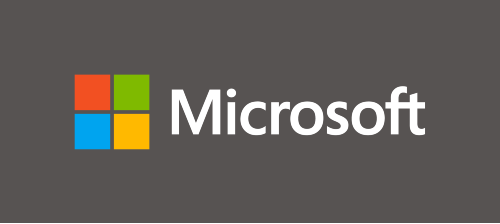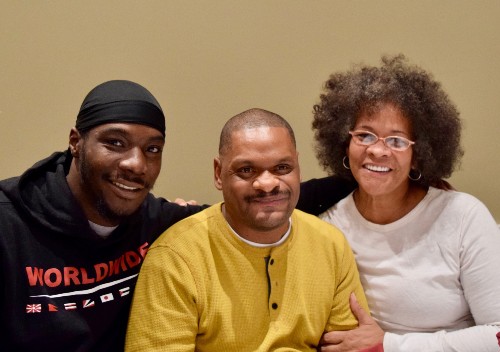The InVisionary
If you were to ask anyone what the most exciting part of a new job would be, there’s a high likelihood they’ll respond with the first paycheck. Your hard work has been recognized, and you’re holding the proof of it in your hands.
For Cindy Magargee, a job facilitator at InVision Human Services, getting that first paycheck is one of her greatest accomplishments—and it’s not even her own.
“It’s definitely a rewarding experience,” Cindy said. “When [a person she supports] get their first paycheck it’s like ‘hey, we did it.’”
Cindy helps the people we support who are seeking employment find gainful work in their communities that fits their needs and capabilities.
“We look for a job that works for them,” said Matt Taylor, an employment supports supervisor at InVision. “[Job facilitators at InVision] are really much more than just job coaches.”
Job facilitators at InVision operate not only as workplace companions for the people they support, but also they develop relationships with community employers to find appropriate opportunities for the people they serve.
“When we get a referral, the first thing we do is an intake,” Matt said. This process involves learning the person’s interests, uncovering their strengths, and identifying their limitations. This helps narrow down the field of potential jobs.
“Many of the people we support can apply for existing jobs,” Cindy said. “Of course, that depends on the business and whether or not employers are willing to work with us.”
Cindy and other job facilitators help the person they’re supporting search for employment along with other tasks like preparing a résumé, applying for the job(s), interviewing, and—eventually—learning the responsibilities of the job once hired.
“Once they have a job, as a job coach, I explain to employers that I’m [at the business] to keep [the person she supports] on task and get their work done,” Cindy said. “They’re here to work, and I’m here to support them.”
While most employers are cooperative regarding job modifications and on-the-job support, that’s not to say each day is without its challenges.
“[Finding jobs for the people we support] is kind of like a cold-calling situation,” Matt said. “We go out into the community to locate businesses that might fit [a person’s needs].” Job facilitators approach employers with a “pitch” of the person they support as the best fit for their business, but they must always be prepared to negotiate or discuss options for job modifications.

“It’s a lot like a sales business,” Cindy said. “’This is what [the person she supports] wants, this is what they can do; do you have an opening for this person?’ We often have to get creative to convince employers to make modifications to the job for them.”
“It’s not always easy,” she added, “and some employers will often deny them because they’re not willing to make changes.”
Job facilitators play a key role in convincing employers of the intrinsic value and diversity people with disabilities bring to a workplace. They build a foundation of trust and understanding among the people they support, the employers, and disability service providers to lay the necessary groundwork for people with disabilities to become successful, contributing members of their communities.
“Having a relationship with an employer makes [conversations about job modifications] easier because we can rely on them for job leads for future [people we support],” Cindy said.
Thanks to job facilitators’ hard, relationship-building work, many employers recently are more than willing to not only hire people with disabilities, but also work with job facilitators and disability service providers to customize a job so the employee has just as many opportunities to succeed as anyone else.
Becoming a job facilitator means much more than simply helping a person with disabilities find a job. They partner with the person they support to discover their passions and achieve their career goals. They build lasting relationships with employers in their communities to ensure each person they support finds fulfilling, fair employment in their area of interest.
“Being a leader and interacting with the businesses [about employing people with disabilities] is what I really enjoy about this job,” Matt said.
“You need to be able to step out of your comfort zone when talking with employers on behalf of [a supported person],” Cindy added. “And while you have to adapt to change in a New York minute, [being a job facilitator] is a lot of fun. Each day is different.”
Interested in becoming a job facilitator at InVision? Visit our career page to learn more!
For Cindy Magargee, a job facilitator at InVision Human Services, getting that first paycheck is one of her greatest accomplishments—and it’s not even her own.
“It’s definitely a rewarding experience,” Cindy said. “When [a person she supports] get their first paycheck it’s like ‘hey, we did it.’”
Cindy helps the people we support who are seeking employment find gainful work in their communities that fits their needs and capabilities.
“We look for a job that works for them,” said Matt Taylor, an employment supports supervisor at InVision. “[Job facilitators at InVision] are really much more than just job coaches.”
Job facilitators at InVision operate not only as workplace companions for the people they support, but also they develop relationships with community employers to find appropriate opportunities for the people they serve.
Discovering Meaningful Career Opportunities
The path to a rewarding career for the people we support begins and ends with our job facilitators. They’re responsible for finding or creating jobs for the people we support that match their goals for employment.“When we get a referral, the first thing we do is an intake,” Matt said. This process involves learning the person’s interests, uncovering their strengths, and identifying their limitations. This helps narrow down the field of potential jobs.
“Many of the people we support can apply for existing jobs,” Cindy said. “Of course, that depends on the business and whether or not employers are willing to work with us.”
Cindy and other job facilitators help the person they’re supporting search for employment along with other tasks like preparing a résumé, applying for the job(s), interviewing, and—eventually—learning the responsibilities of the job once hired.
“Once they have a job, as a job coach, I explain to employers that I’m [at the business] to keep [the person she supports] on task and get their work done,” Cindy said. “They’re here to work, and I’m here to support them.”
While most employers are cooperative regarding job modifications and on-the-job support, that’s not to say each day is without its challenges.
Building Community Relationships
Not every business has an immediate opening for a person with disabilities, but job facilitators—who are committed to finding the perfect job for the person they support—initiate the conversations with employers about helping people with disabilities better integrate into their communities through meaningful job opportunities.“[Finding jobs for the people we support] is kind of like a cold-calling situation,” Matt said. “We go out into the community to locate businesses that might fit [a person’s needs].” Job facilitators approach employers with a “pitch” of the person they support as the best fit for their business, but they must always be prepared to negotiate or discuss options for job modifications.

“It’s a lot like a sales business,” Cindy said. “’This is what [the person she supports] wants, this is what they can do; do you have an opening for this person?’ We often have to get creative to convince employers to make modifications to the job for them.”
“It’s not always easy,” she added, “and some employers will often deny them because they’re not willing to make changes.”
Job facilitators play a key role in convincing employers of the intrinsic value and diversity people with disabilities bring to a workplace. They build a foundation of trust and understanding among the people they support, the employers, and disability service providers to lay the necessary groundwork for people with disabilities to become successful, contributing members of their communities.
“Having a relationship with an employer makes [conversations about job modifications] easier because we can rely on them for job leads for future [people we support],” Cindy said.
Thanks to job facilitators’ hard, relationship-building work, many employers recently are more than willing to not only hire people with disabilities, but also work with job facilitators and disability service providers to customize a job so the employee has just as many opportunities to succeed as anyone else.
Succeeding as a Team
When community businesses employ people with disabilities, everyone benefits. The employee with disabilities performs meaningful job functions in support of a business’s and their own goals while the business gains a hard-working, dedicated employee who brings a unique skillset to the workplace.Becoming a job facilitator means much more than simply helping a person with disabilities find a job. They partner with the person they support to discover their passions and achieve their career goals. They build lasting relationships with employers in their communities to ensure each person they support finds fulfilling, fair employment in their area of interest.
“Being a leader and interacting with the businesses [about employing people with disabilities] is what I really enjoy about this job,” Matt said.
“You need to be able to step out of your comfort zone when talking with employers on behalf of [a supported person],” Cindy added. “And while you have to adapt to change in a New York minute, [being a job facilitator] is a lot of fun. Each day is different.”
Interested in becoming a job facilitator at InVision? Visit our career page to learn more!




Comments (0)